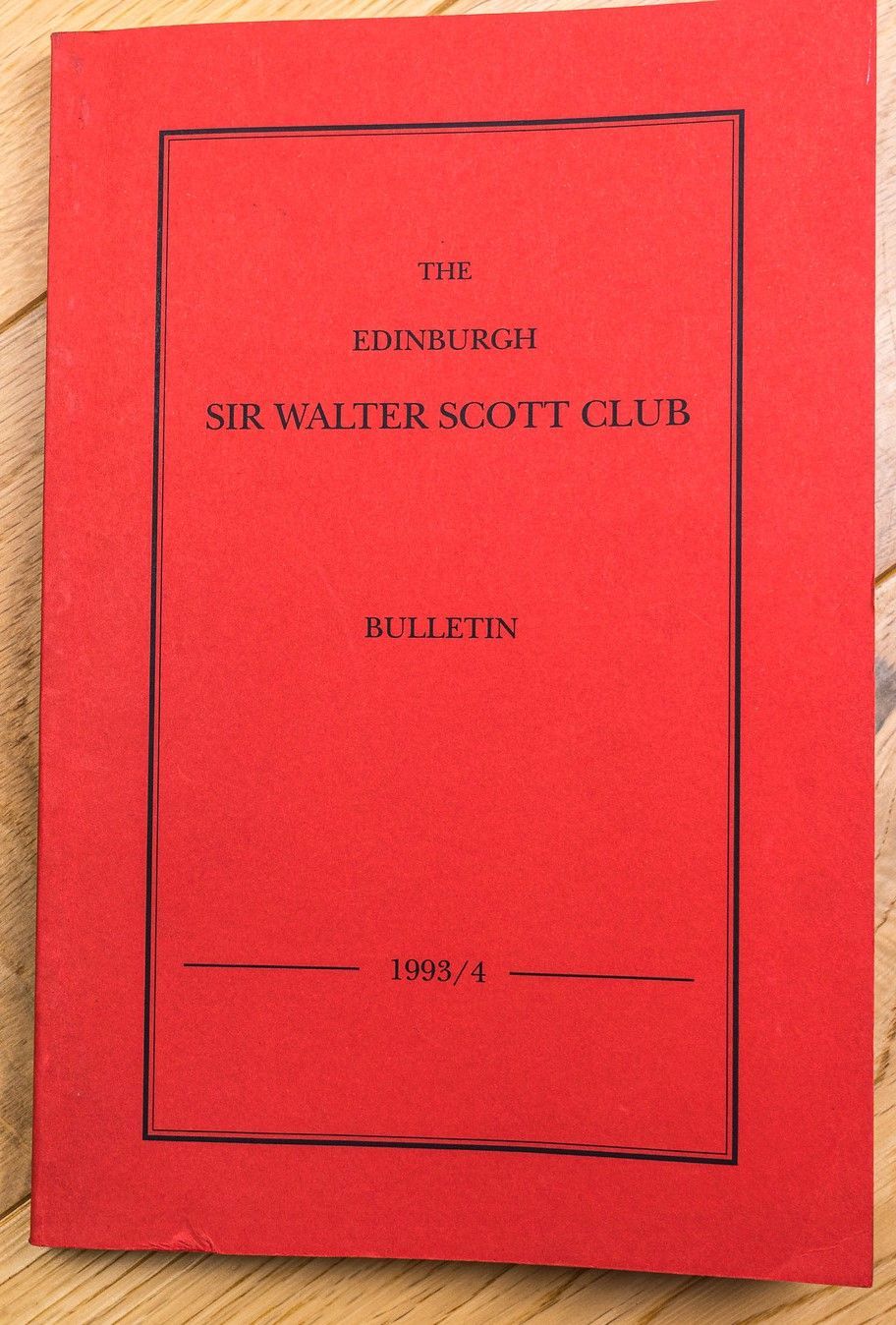Walter Scott at the Bar
A.G.Stevenson
Article from 1994 Bulletin
Summary of the Article:
This article reflects on the legal career of Sir Walter Scott, marking the 200th anniversary (in 1992) of his admission to the Faculty of Advocates in 1792. While Scott is best known as a novelist and poet, Stevenson explores his lesser-known but significant legal background.
Early Life and Legal Training
- Scott’s father was a Writer to the Signet, strict and honest but poor at business. Walter was apprenticed to him in 1786 at age 14.
- Illness ruled out a military career, and though Scott began in his father's legal office, he disliked the agent-client relationship and legal drudgery, finding law uninspiring compared to his growing love for literature.
- He described his preferences in verse, declaring Shakespeare and Spenser his “clients.”
Education and Call to the Bar
- Scott studied Roman and Scots law, influenced by tutors like David Hume (nephew of the philosopher).
- In 1792, aged not quite 21, he was admitted to the Bar.
- His thesis (Disputatio Juridica) was on the disposal of the bodies of executed criminals—an unusual but telling topic given his interest in the macabre.
Early Legal Work and Advocacy
- Though not drawn to advocacy, Scott practised law diligently, particularly in the early years, often receiving referrals from his father’s clients.
- His legal earnings never exceeded £230 a year. In contrast, he earned £300 annually as Sheriff-Depute of Selkirkshire (appointed in 1799), a role he held until his death.
Notable Cases
- Rev. John McNaught (1793): Scott defended the minister against charges of drunkenness and lewd behaviour. Scott’s argument, though inventive, failed, and McNaught was deposed.
- Palmer v. McMillan (1793): One of the earliest public nuisance cases in Scotland, involving a butcher slaughtering animals in his yard.
- Fakieff v. Elphinstone (1794): A case involving the seizure of a Russian merchant ship, heard in the House of Lords.
- Jedburgh Criminal Cases: Scott defended poachers and housebreakers, showing interest in criminal law. His poetic line “Yelping terrier, rusty key / Was Walter Scott’s best Jeddartfee” came from a client’s advice on home security.
Later Legal and Public Career
- Scott used the legal profession to elevate his social standing. He became one of the six Principal Clerks to the Court of Session in 1806, earning £800 a year.
- His legal contacts and status gave him access to influential figures and literary inspiration.
- He remained respected in the legal community and contributed to the Advocates’ Library and public discourse on legal history.
Interesting Points
- Legal Disillusionment vs. Literary Calling: Scott never fully embraced the law emotionally, yet it funded and facilitated his literary ambitions.
- Influence on Fiction: His courtroom experiences and characters clearly fed into his fiction, especially the Waverley novels.
- Social Climbing Through Law: The law was a springboard—he used his legal stature to gain societal recognition, not unlike the protagonists of his novels.
- Family Dynamics: Scott's relationship with his father and brother Thomas influenced many of his life choices, and he later supported Thomas despite serious misconduct.
- The Mountain: Scott was part of a young lawyers’ society called “The Mountain”, foreshadowing literary camaraderie in later life.
Download the [transcript] or read the [bulletin]

Download the [transcript] or read the [bulletin]


